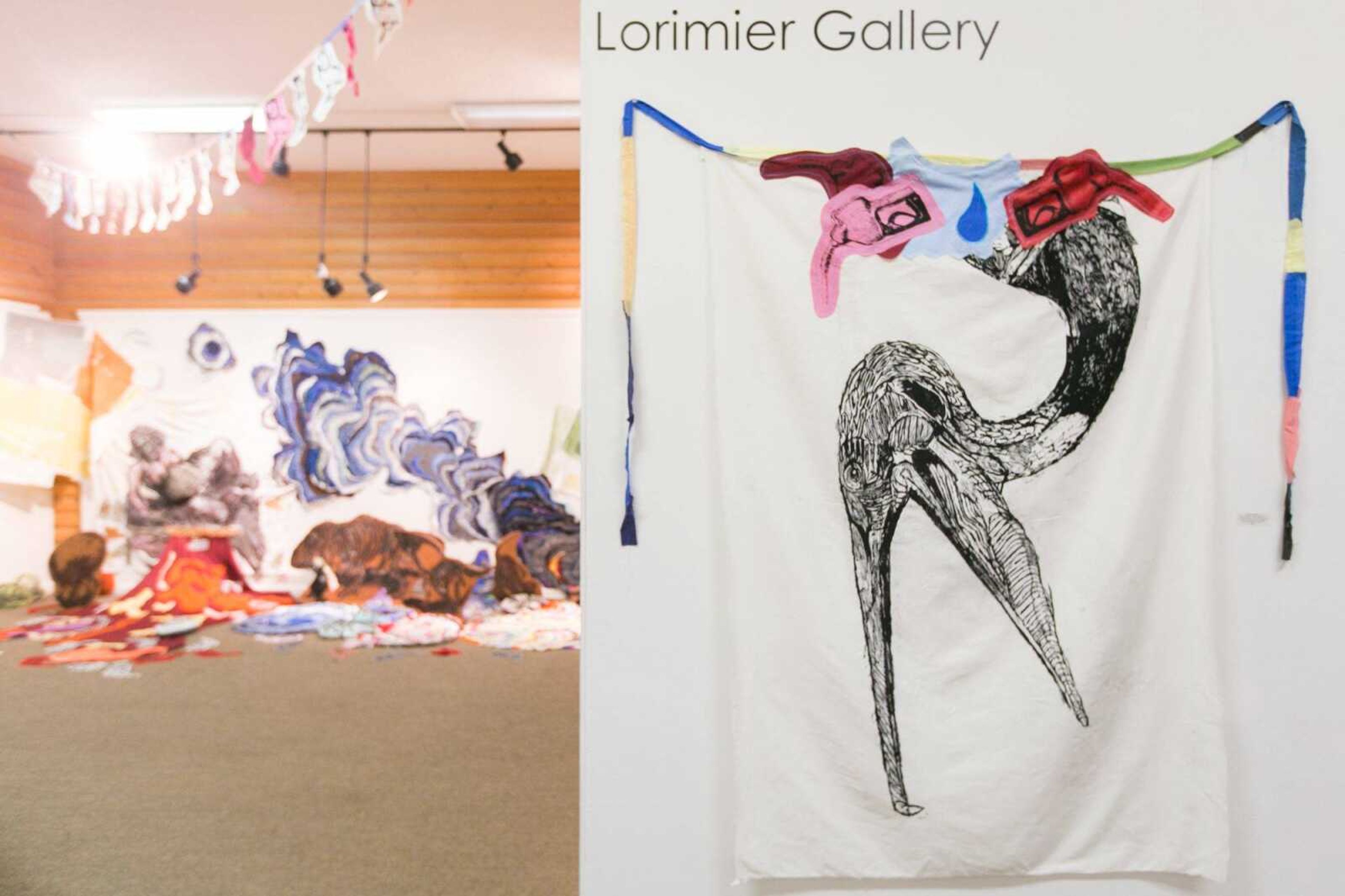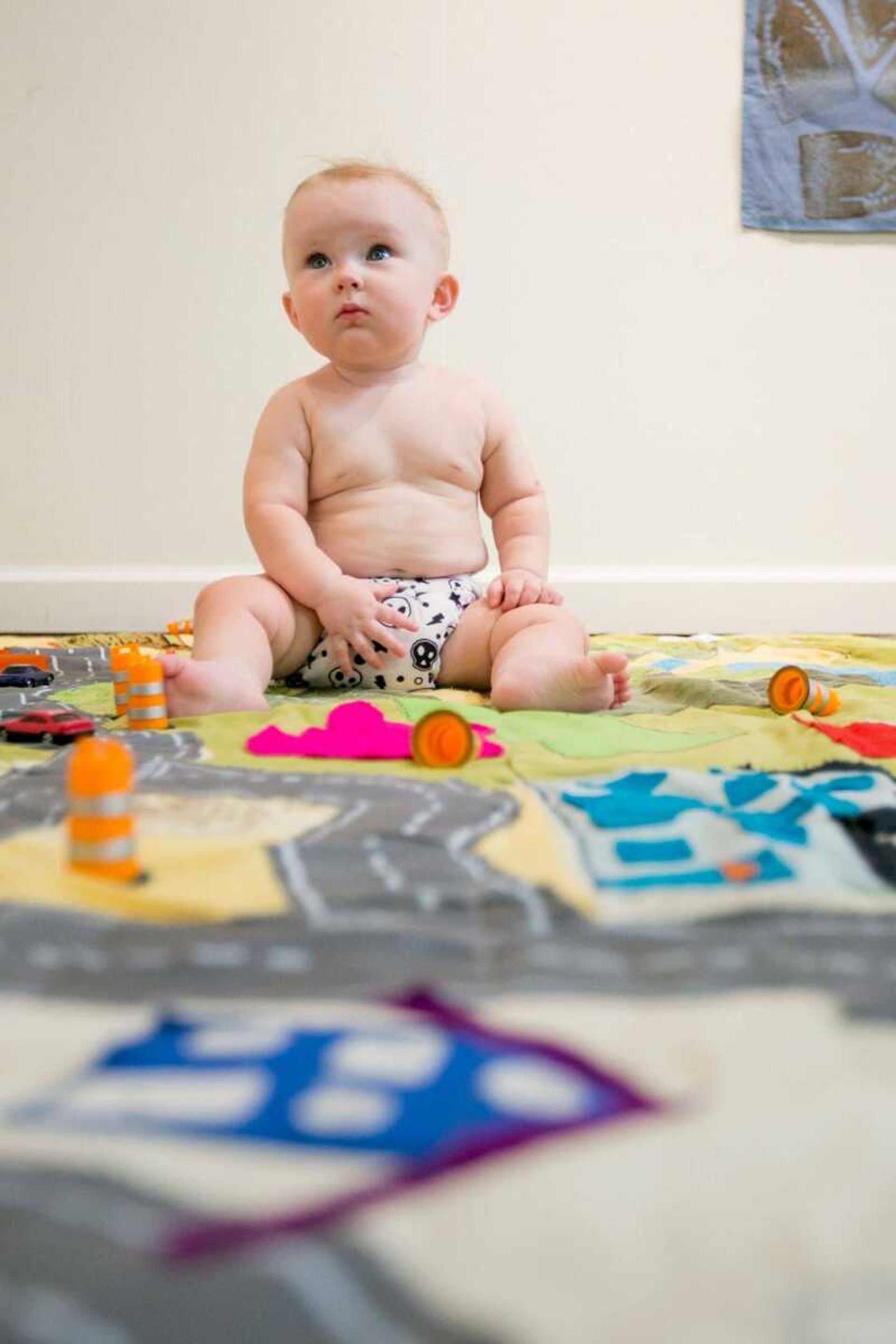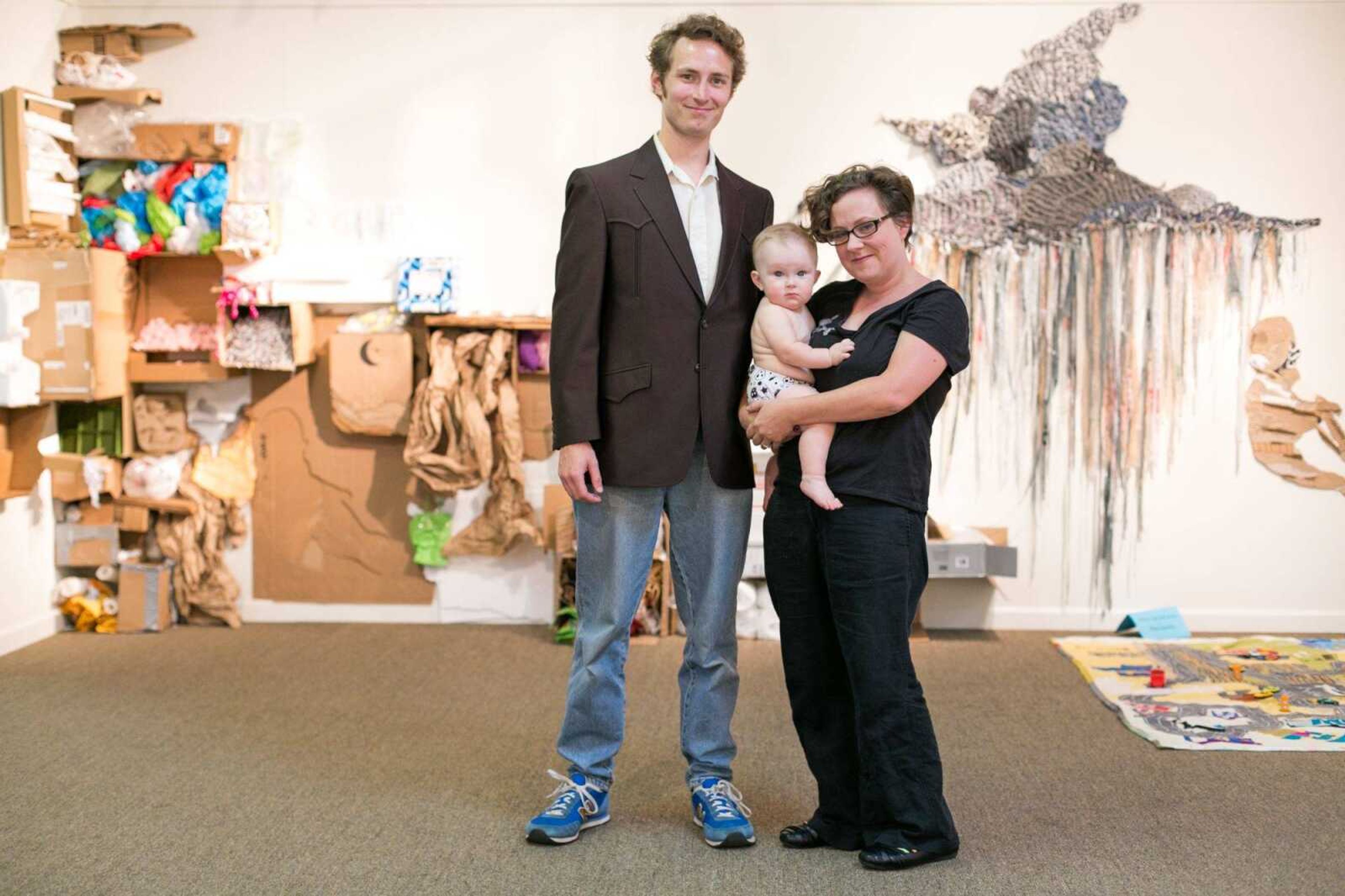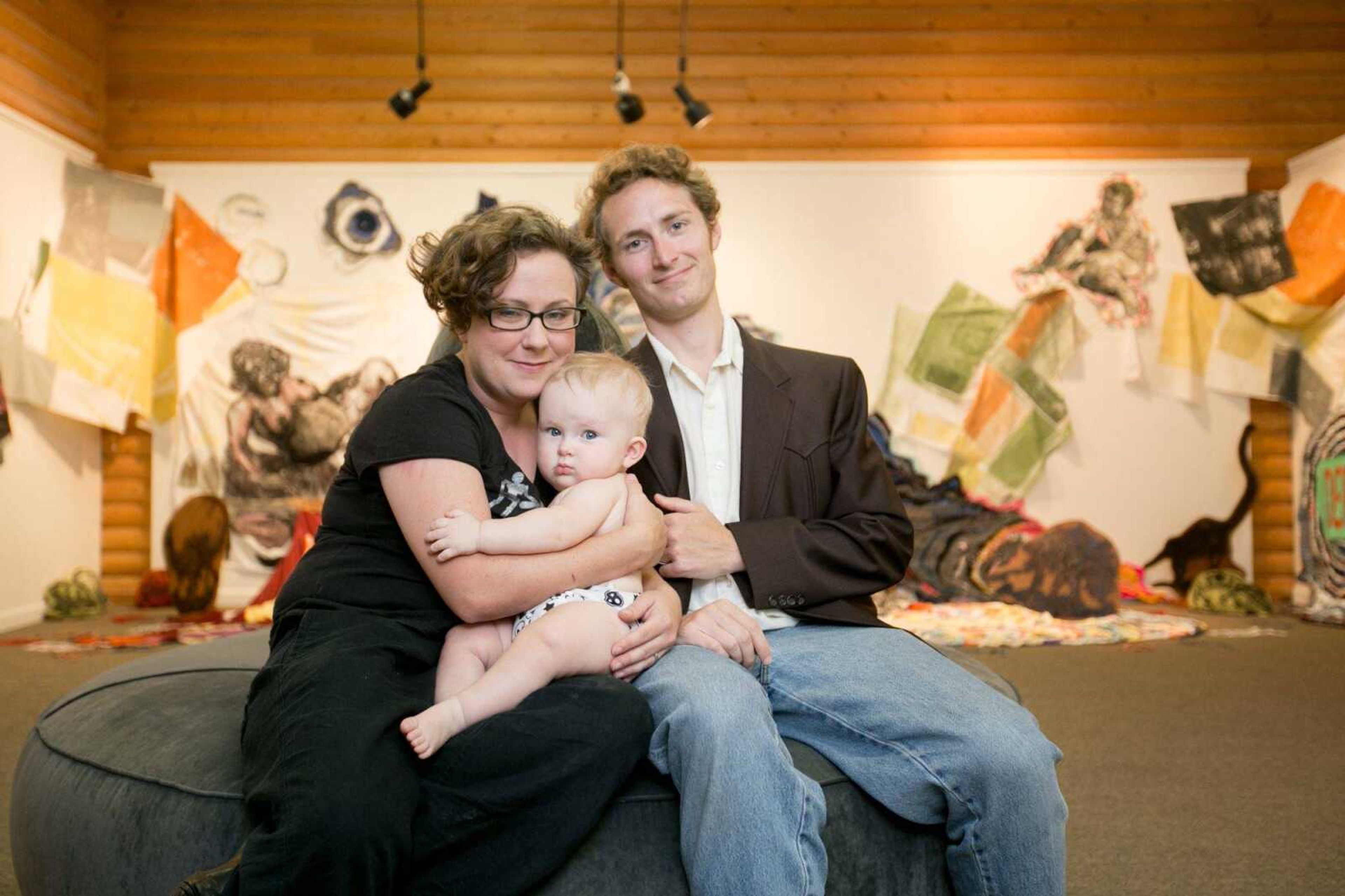Turning uncertainty into inspiration
As ardent environmentalists, Blake and Hannah Sanders spent a long time deciding whether they thought it would be right to have a child. Hannah heard from some people that having a child is the most selfless act one can take, while simultaneously hearing -- and often fearing -- it might be the opposite...
As ardent environmentalists, Blake and Hannah Sanders spent a long time deciding whether they thought it would be right to have a child. Hannah heard from some people that having a child is the most selfless act one can take, while simultaneously hearing -- and often fearing -- it might be the opposite.
"I can understand why people do and why people don't decide to have children," she said.
But the couple did decide to have children, and 10 months ago, Levee was born. As artists -- and art professors at Southeast Missouri State University's River Campus -- the Sanders were able to turn uncertainty into inspiration. This month, The Arts Council of Southeast Missouri is hosting an exhibition of the couple's art in an installation project that includes prints, collage and drawing.
"We wanted to visually see our [environmental] impact and put it in front of other people," Blake explained. "What I talk about in my work is a lot of ways about environmental concerns and outdated human behaviors."
Hence, the twofold symbolism of the dinosaur prints that recur in many of his works, since dinosaurs are inherently linked to the fossil fuels that power our society, but also serve as a metaphor for anachronistic behaviors.

"Anything outdated, we refer to as a dinosaur," he said. "And it's a nice way to pull people in who might not otherwise spend much time with the art."
Dinosaurs are accessible, he explained, and nearly every child goes through a dinosaur-obsessed phase sooner or later. Other common symbols in their work are the female form, suggesting Mother Earth or humanity, and the pelican.
Beyond its passing resemblance to the pterodactyl, the pelican holds a rich symbolic history. It's the state bird of Louisiana, and Hannah said she became fascinated with the bird during the time she and Blake spent studying in New Orleans.
Folklore held that during times of famine, the pelican would bite its breast to feed its young on its own blood, and Hannah saw in that a parallel to Louisiana as a whole. Housing one of the most crucial port mouths in the country, Louisiana is instrumental in feeding the rest of the nation's population, often to its own detriment, as evidenced by the Deepwater Horizon oil spill in 2010.
The Sanderses also witnessed the devastation of Hurricane Katrina during their time in Louisiana, as well as the beginning of fracking operations while living in Ohio. Nearly everywhere they go, there's an environmental concern for which to advocate. In Cape Girardeau, it's the health of the Mississippi River.

"The river is always a concern," Blake said. "How it's been rerouted and how that's changing the landscape, the commerce on the river."
But while their current exhibit is just as concerned with the environment, they've decided to turn the lens on themselves.
"A lot of what this exhibition is about is how all these overarching concerns relate to our family's anxieties and guilt about bringing another consumer into the world," Blake explained.
"In the past, we worried about being a bit too preachy and stuff," Hannah said.
But a collage made entirely from packaging materials from gifts that baby Levee received from loved ones is intended to show that even though the Sanderses recycle, eschew disposable diapers and adopt a host of other eco-conscious habits, they and their infant are still part of a wasteful, throwaway culture.

"To see how much stuff it actually was, was a big message," Hannah said. "We were trying to be good parents and good members of the planet, but we were still not being such awesome citizens of this planet."
"A big part of [the exhibit] is to address our own complicity in the mess that humans are making," Blake said. "It's saying, 'This is our component,' and asking the audience to do the same. The goal is to get people thinking about how much they're contributing and hopefully saying, 'I could be doing more to cut down as well.'"
tgraef@semissourian.com
(573) 388-3627
Connect with the Southeast Missourian Newsroom:
For corrections to this story or other insights for the editor, click here. To submit a letter to the editor, click here. To learn about the Southeast Missourian’s AI Policy, click here.










